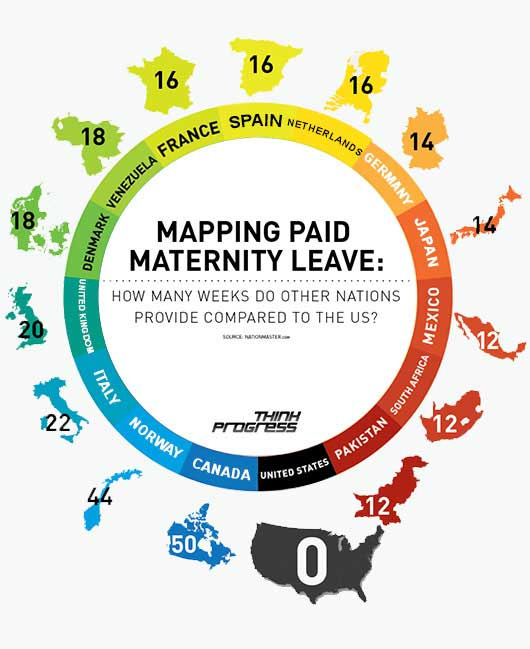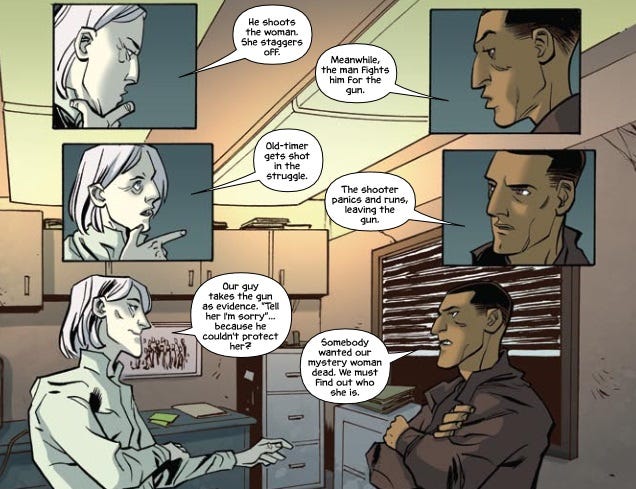So What, Who Cares (vol 2, issue 102) How Microsoft's leave policy signals a new labor approach
Hello! This is going to be an unorthodox edition as we careen into the weekend, mostly because I have spent most of my energy wondering why everyone's conflating the announcement "Netflix said its employees could take up to a year of leave!" with the reality "Netflix employees have the potential to do this but will it actually come to pass?" (vol 2, issue 101)

Also, Microsoft has overhauled its parental leave policy. Microsoft EVP of Human Resources Kathleen Hogan specifically used the language "all mothers and fathers of new children" when talking about the 12 paid weeks that mothers and fathers now have. Then she went on to add that women who are bearing a child will get an additional eight weeks of short-term disability, thus bringing the maximum amount of paid parental leave for biological mothers to 20 weeks.
The language is interesting in that it posits "parenthood is parenthood and p.s. here's a little health consideration thrown in on the side to the people who just manufactured a human being."
What is more interesting: the benefits revision suggests an ongoing upgrade in how Microsoft treats its workforce. This is the same company that now requires its contracting firms to offer their employees at least 15 days off per year. In other words, Microsoft is making sure its janitors, cafeteria workers, security guards and shuttle bus drivers get paid time off. This is a switch from the general attitude of tech companies toward the contractors who keep things running smoothly (vol 1, issue 1).
For those keeping score at home, here's how the tech titans square up on leave (from vol 2, issue 31):
AMAZON: The company is not featured in studies/roundups of tech companies and paid leave; former employees write, "You can get up to 12 weeks unpaid by applying FMLA."
APPLE: 6 weeks of paid leave for adoptive parents and fathers; 14 weeks paid postpartum leave to bio

logical mothers, with an option of 4 weeks pre-birth leave.
CHANGE.ORG: 18 weeks paid leave to any employee who becomes a parent, biological or adoptive, regardless of gender.
GOOGLE: 12 weeks of paid leave for adoptive parents and fathers; 18 weeks of paid maternity leave for biological mothers (22 weeks if there are medical complications).
INSTAGRAM: 17 weeks paid leave to any new parent, regardless of gender.
KICKSTARTER: 12 weeks paid leave to any new parent, regardless of gender.
MICROSOFT: 12 weeks of paid leave for adoptive parents and fathers; 20 weeks of paid maternity leave for biological mothers; 2 weeks short-term disability for expectant mothers.
NETFLIX: Employees have the potential to take up to 52 weeks once they have found someone to cover for them and squared everything away with their manager.
PINTEREST: 12 weeks paid leave to any new parent, regardless of gender.
REDDIT: 17 weeks paid leave to any new parent, regardless of gender.
TWITTER: 10 week paid leave to new fathers or adoptive parents; 20 weeks paid maternity leave to biological mothers.
YAHOO: Eight weeks of paid leave to adoptive parents or to fathers; sixteen weeks of paid leave to women who give birth.
This is just for the tech industry, and benefits experts say the weeks off are very generous compared to the average of 30 days new mothers get in other industries. Remember: the U.S. is the only developed country that does not have any national policy guaranteed paid parental leave, and it lags only Mexico in lack of "protected leave," i.e. allowing new parents to take unpaid leave to care for a new baby without fear of losing their job.
What's the policy at your company? How did you manage parental leave -- or not -- when you added to your family? Tell me via Twitter or email.
*
Your pop-culture note of the day: It is always an awesome thing when people I like do things that I like, and it is my great pleasure to pass along two of those awesome things to you.
The first thing is an installment in the Toast's "If [celebrity name] were your [boyfriend/girlfriend]," and those pieces have ranged from the laugh-out-loud hilarious Channing Tatum entry ("'Babe, you are so smart,' he would say, while welding at you" reduces me to giggles any time I think about it) to the Grimm's fairy tale of being Gwyneth Paltrow's beloved.
And I'm so pleased that my pal @daisy_razor has written the installment "If Blake Lively were your girlfriend." Come for the Guernica joke, stay for the mason jar punchline.

The second thing is an enthusiastic endorsement for the comic series The Fuse by Antony Johnston, with whom I've podcast. Antony is so creative and so prolific, it would be easy to envy him if he weren't so nice and so damned imaginative and funny. And The Fuse is comics for people who love comics and for people who don't: It's a murder mystery on a space station, solved by a detective on the brink of retirement and her secret-keeping young partner.
Antony is great at constructing a plausible mystery and in using the medium of comics to its maximum advantage for storytelling. I also really, really like how one of the main characters is an older woman who is not an immortal witch (so far), which is of itself something of a refreshing deviation from the norm for old women in comics not named "Aunt May." Go get Fuse and kiss your loved ones good-bye for the weekend: I read the first two trades in one heady gulp.
*
A NEW MONTH, A NEW FOOTER: Here's a free and easy way to show people you like them -- send them here to subscribe to So What, Who Cares? You can plumb the archives here. You can always reach out to me via Twitter or email. You can go where you want to/ to a place they'll never find/ and we can act like we come from out of this world/ and leave the real one far behind.

